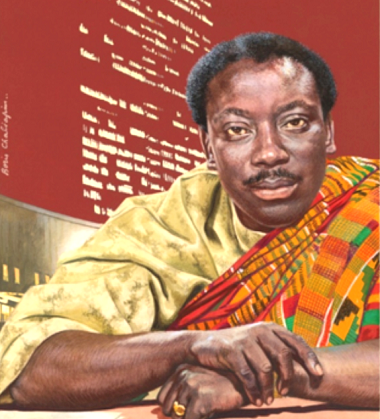
A magnificent pillar in Gold Coast education - Rev. R.A. Lockhart sets standards
That glorious occasion in 1964 when Alex Quaison-Sackey (1924 – 1992) mounted the United Nations General Assembly dais as the substantive President of that august body confirmed Rev. R. A. Lockhart’s prescient remark that one day the nation and the world at large would marvel at the products of the school. With Quaison-Sackey’s spectacular presence in full view, the African personality was at its peak.
It is my ardent view that Mfantsipim’s golden years began with the elevation of Rev. Lockhart as Headmaster. In remembering this maverick, it is apt to hear this classic comment by Winston Churchill: “One mark of a great man (is) so to have handled matters during his life that the course of after-events is continuously affected by what he did.”
Advertisement
Best Cambridge results
In the academic sphere, Rev. Lockhart’s focus favoured the cognitive — that being the substantive mode for comparison with the so-called “civilised race”. His speech day reports resonated with pride, with the excellence of Cambridge students’ examination results year in, year out. The number of successful boys was for years, the largest in West Africa. He prophesied: “In a few years the people of this country (Ghana) will be amazed at the number of its influential citizens who owe allegiance to this school.”
In infrastructure, he embarked on the bold expansion scheme that we see at the school today. In staff development, he raised teaching standards to the highest levels, often recruiting the sharpest teachers from within the school itself. Joe Appiah recalled: “For nearly a quarter of a century, this Irish patriot had given all of his best to the building of the new Mfantsipim and had been spared, even by the almighty mosquito, which must have recognised the great contribution he was making to our nation’s development … In the dispensary, Mrs Lockhart was a veritable Florence Nightingale.”
Rev. Lockhart’s priorities included protecting his turf and avenging the colonial stereotyping of the African as inferior. Additionally, he tired in persuading Cape Coasters to walk the talk; i.e. enrol more of their wards and also pay for their upkeep. His sword cut from both edges. His beef was that local people “talk a lot, criticise a lot in negative ways, but their lack of action betrayed a lack of inner self-confidence”.
Taught with conviction
Rev. Lockhart’s foresight and motivation were extraordinary. Having served as an assistant headmaster (1922 - 1925), he grew sensors for running a successful school. He cultivated other things too: a thick skin and a “right-on” temper for “managing” the smugness of colonial intrigues. Being Irish, he was driven by what was clearly a distaste for imperial arrogance of the colonial kind.
While being groomed by Rev. Lockhart, the young F.L. Bartels observed him as “an expert proponent of conviction politics … standing up for the right as one sees it, come what may”. He was also “a great orator, clear-headed and extremely eloquent”.
Equally well known is the impact of Rev. Lockhart in this country through his old boys. Rev. Lockhart achieved in a measure for Mfantsipim that enviable status of the great schools whereby the best testimonial a boy could have was the name of his school. His old boys were the best advertisement of Mfantsipim. Their success in further studies and posts of responsibility are of a high order. “Africanisation” was materially assisted by their equality.
Great teacher
Rev. Lockhart was himself a great teacher with a remarkable gift for lucidity and conciseness of expression. According to Mr Bartels, Rev. Lockhart refrained from taking an active part in the actual teaching, so that he might be free to supervise and direct the teaching of his staff. He would not go outside the country for staff. He took local people, largely his own old boys, and brought them up to speed. While he pursued this policy of in-training, he made sure that he always had two or three senior African teachers who gave him the benefit of their experience of the peculiar circumstances of the country. That this policy has been effective, the phenomenal success of the school is a lasting witness.
For Bartels, it is to Rev. Lockhart's “general ability in administration, as well as in education that future generations will turn for encouragement and example. The framework of administration and organisation he devised has stood the test of difficult times; they serve the school well today”.
(For Rev. Lockhart, the day Alex Quaison-Sackey (attired colourfully in a Kente) sat in the United Nations dais and presided over the world body - and with the former school prefect’s spectacular presence in full view - the African personality was at its peak. Even in retirement, Rev. Lockhart returned to the newly independent Ghana and reiterated that the work of a good mission was to develop action-oriented, self-confident citizenry.)
The writer is a trainer of teachers, leadership coach, motivational speaker and quality education advocate.
E-mail: [email protected]




